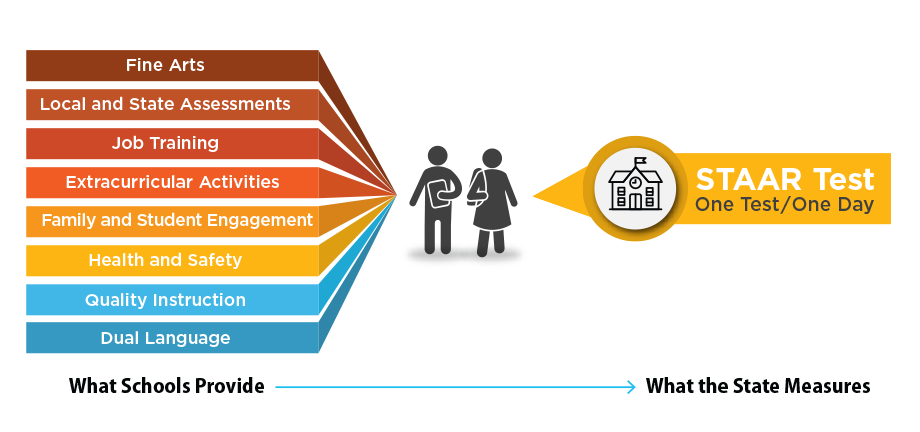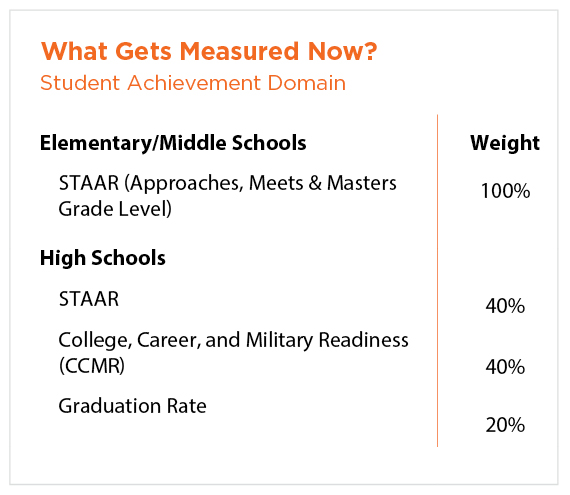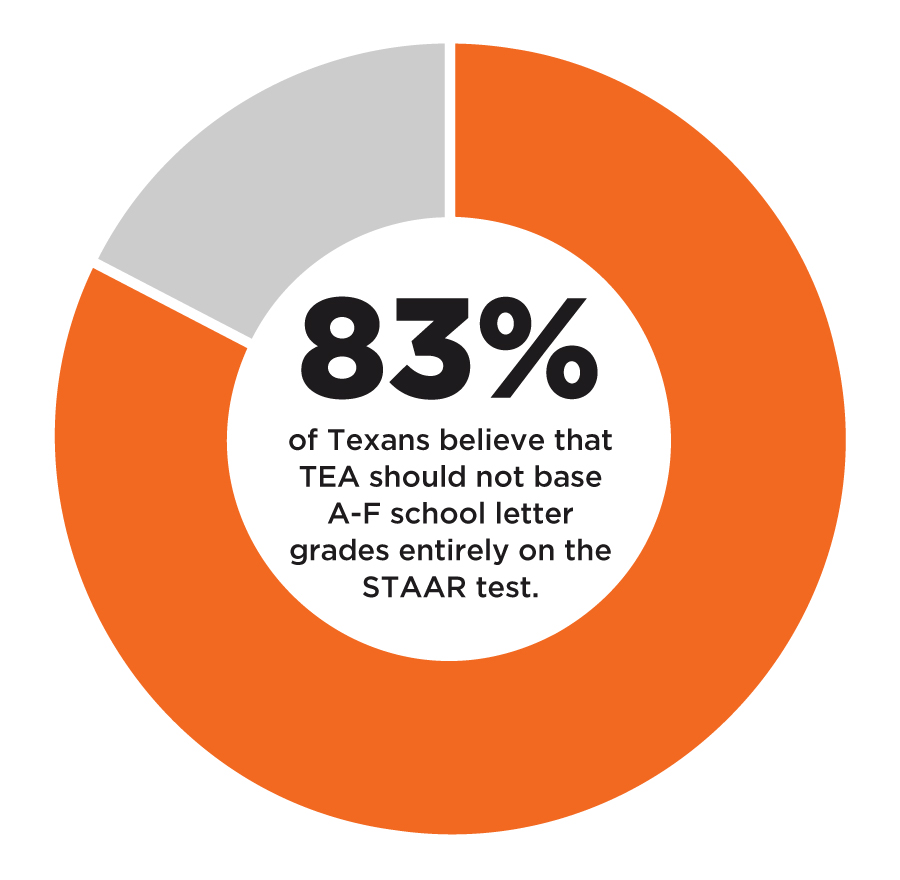STAAR tests should not be the only tools used for grade advancement or high school graduation. To effectively address individual student needs, teachers must use appropriate and timely assessments to better inform instruction, address student learning gaps, and provide appropriate feedback to parents. Schools already have a number of other diagnostic tools that can be used locally to meet these needs.
Overemphasis on STAAR undermines the student-centered process at the heart of quality assessment. The most effective assessments are low-stakes, identify strengths and weaknesses, and inform instruction throughout the school year. STAAR, as a single high-stakes test, cannot meet those needs.







